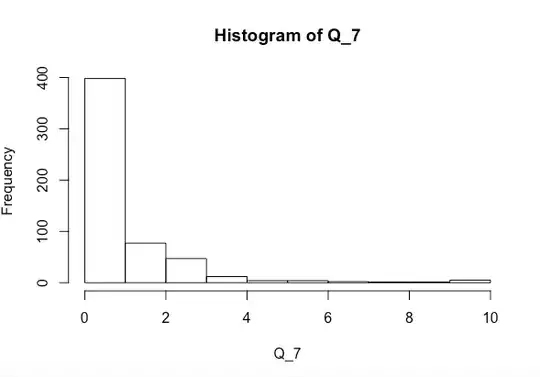The short answer is yes.
First of all (as is pointed out by Ruben van Bergen), the distribution of $y$ (or $X$, for that matter) is not relevant. If you were to make a distributional assumption, it would be on your residuals $\varepsilon$, so that is what you should check.
But more importantly, you don't need the normality assumption at all for your estimation to work. You are using R's lm function, which estimates your model using ordinary least squares (OLS). That method will give you a correct estimation of the expectation of $Y$ conditional on $X$ as long as:
- $\mathbb{E}[\varepsilon|X] = 0$ (there is no external factor affecting both your outcome and your explanatory variables).
- $\mathrm{Var}(\varepsilon) < \infty$ (your residuals have finite variance).
If you further make the assumption that you residuals are uncorrelated and that they all have the same variance, then the Gauss-Markov theorem applies and the OLS is the best linear unbiased estimator (BLUE).
If your residuals are correlated or have different variances, then OLS still works but it can be less precise, which must be reflected in the way you report the confidence intervals of your estimates (using, say robust standard errors).
If you also make the assumption that your residuals are normally distributed, then OLS becomes asymptotically efficient because it is equivalent to maximum likelihood.
So the regression may work better if your data are normally distributed, but it will still work if they aren't.
